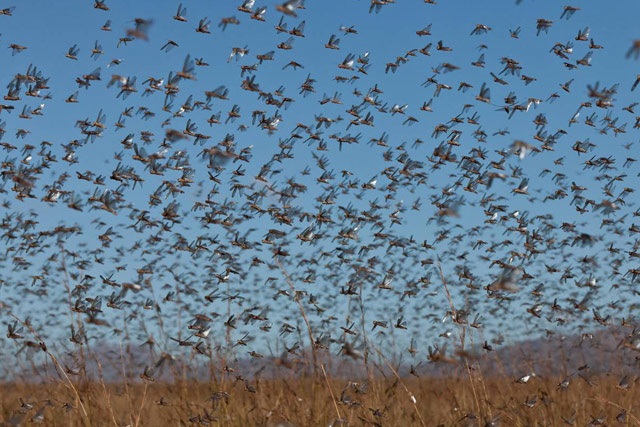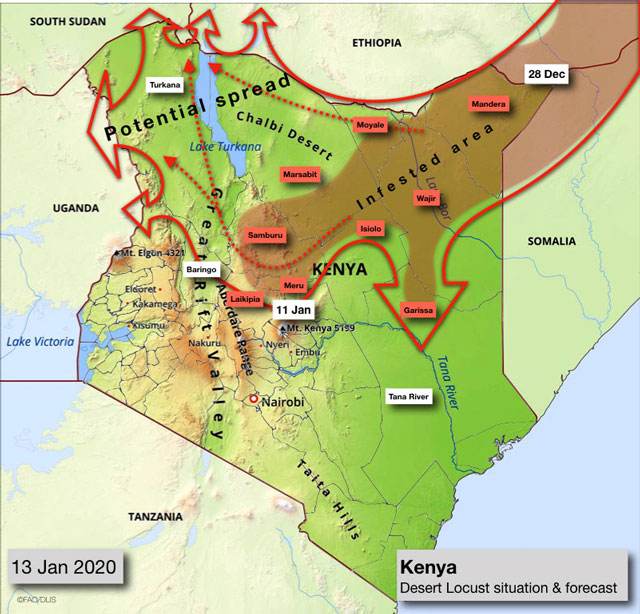
Kampala, Uganda | THE INDEPENDENT | Uganda needs five billion shillings to avert a possible invasion of desert locusts, according to the Ministry of Agriculture, Animal Industry and Fisheries.
The announcement comes amidst an invasion of locusts which are threatening pastures and crops in the Horn of Africa. The locusts are a species of short-horned grasshopper family characterized by high mobility and broad-spectrum feeding habits.
Reports indicate that a number of large immature swarms have moved south in the Ogaden of eastern Ethiopia and adjacent areas of central Somalia and reached southern Somalia, southeast Ethiopia and, on northeast Kenya. By today, the locusts have been detected in six Kenyan counties of Mandera, Marsabit, Wajir, Garissa, Meru and Isiolo.
But there are fears that some of the swarms could move further Western into Turkana county, probably by Mid-January 2020, with likely potential and risk that they could spill over into Karamoja, in the North-Eastern region of Uganda. The area shares a border with Turkana county.
Now the Ugandan government says that it needs to urgently procure aircraft fuel to carry out spraying, pesticides, ground spray equipment and support spray teams and supplement of support from the Desert Locust Control Organization for East Africa-DLCO-EA, which is already offering spraying support to member countries.

State Minister for Agriculture Aggrey Bagiire says that they have written to the Ministry of Finance to release a contingency fund to control the situation. Bagiire says that the ministry wants to prepare ahead of time, and deal with the dangers that the locusts could have on Uganda.
He added that Uganda has also sent a technical team of two officers to Wajir and Marsabit counties in Kenya to understudy the current Locust control operations to subsequently share experiences and support the control efforts in Uganda, in case of an outbreak.
“Kenya and Uganda are very close and if these creatures devastate Turkana, Karamoja will be infested. We have sent a team of two officials to Kenya to benchmark on how we can properly control the situation based on what is taking place in Kenya,” Bagiire said.
Bagiire says that the current locust outbreak is a cause for worry since nothing of this sort has been seen the last outbreak that took place in 1950.
According to the Food and Agriculture Organisation, the locusts have already destroyed 70,000 hectares (175,000 acres) of farmland in Somalia and Ethiopia, threatening food supplies in both countries.
The Ministry of Agriculture has now alerted all the districts in Karamoja and entire Eastern Region to be on the lookout for any strange grasshoppers detected in their areas. Bagiire, however, adds that Uganda is ready to handle the situation.
******
URN
 The Independent Uganda: You get the Truth we Pay the Price
The Independent Uganda: You get the Truth we Pay the Price





